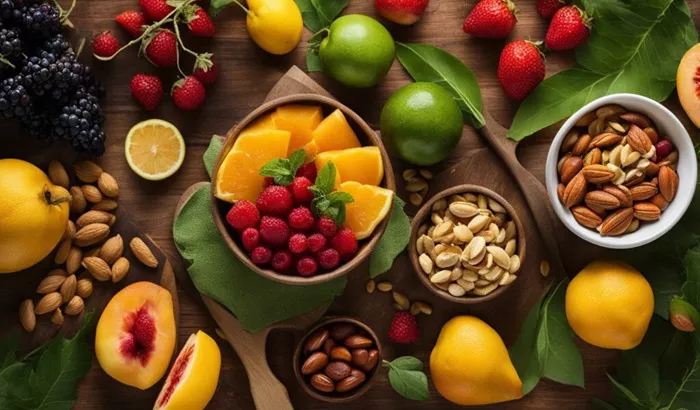In the world of fitness and nutrition, meal planning is an essential component to reaching health and performance goals. Whether you are aiming to build muscle, increase your energy levels, or simply follow a balanced and nutrient-rich diet, understanding the foods that will provide you with the energy you need throughout the day is crucial. If you’re wondering what you can eat in a day to consume 3000 calories, this article is for you. We’ll break down a detailed plan that incorporates healthy, delicious, and nutritious meals to meet this daily calorie goal.
Why 3000 Calories?
Before diving into the specific foods, it’s important to understand why a 3000-calorie diet may be necessary. A 3000-calorie meal plan is often used by individuals who are looking to increase their calorie intake, such as bodybuilders, athletes, or those with high metabolic rates. For those who want to gain muscle mass or fuel intense workouts, this calorie target can help provide the energy required for performance and recovery. However, it’s important to balance calorie intake with macronutrients like protein, carbohydrates, and fats.
Understanding Macronutrient Ratios
To create a balanced 3000-calorie diet, it is essential to focus on macronutrients. Each macronutrient plays a unique role in fueling the body and supporting its functions:
Protein
Protein is crucial for muscle repair and growth, especially after intense physical activity. Aim for at least 1.2 to 2.0 grams of protein per kilogram of body weight. For a 3000-calorie diet, this can amount to 150-200 grams of protein, depending on individual needs. Protein sources include lean meats, poultry, fish, eggs, and plant-based options like lentils, tofu, and quinoa.
Carbohydrates
Carbs are the body’s primary source of energy. Including complex carbohydrates like whole grains, vegetables, and fruits is key to sustaining energy throughout the day. Aim for 4-7 grams of carbs per kilogram of body weight. This means incorporating a variety of carbs, such as brown rice, oats, sweet potatoes, and whole-wheat pasta.
Fats
Healthy fats are essential for overall health, supporting brain function, hormone production, and absorption of vitamins. Avocados, nuts, seeds, and olive oil are excellent sources of healthy fats. Aim to get 20-35% of your daily calories from fat, which can equate to around 80-100 grams of fat per day on a 3000-calorie plan.
Sample 3000-Calorie Meal Plan
Now that you understand the breakdown of macronutrients, let’s look at a sample 3000-calorie meal plan. This plan will provide a balance of protein, carbs, and fats throughout the day.
Breakfast: Power-Packed Start
Start your day with a meal that provides a steady source of energy. A great option is a high-protein oatmeal bowl:
- 1 cup of rolled oats (300 calories)
- 1 scoop of protein powder (120 calories)
- 1 tablespoon of almond butter (100 calories)
- 1/2 banana (50 calories)
- 1 tablespoon of chia seeds (60 calories)
Total: 630 calories
Mid-Morning Snack: Energy Boost
For a snack that fuels your body while keeping you full, try this nutrient-dense option:
- 1 apple (95 calories)
- 1/4 cup of mixed nuts (200 calories)
- 1 hard-boiled egg (70 calories)
Total: 365 calories
Lunch: Balanced and Filling
For lunch, focus on a meal that includes lean protein, healthy fats, and complex carbs:
- Grilled chicken breast (200 grams, 330 calories)
- 1 cup of quinoa (220 calories)
- 1 cup of steamed broccoli (55 calories)
- 1 tablespoon of olive oil (120 calories)
- 1/4 avocado (80 calories)
Total: 805 calories
Afternoon Snack: Protein-Packed and Satisfying
Keep your energy levels up with a snack rich in protein and healthy fats:
- 1 Greek yogurt (200 grams, 150 calories)
- 1 tablespoon of honey (64 calories)
- 1/4 cup of granola (120 calories)
Total: 334 calories
Dinner: Filling and Nutrient-Rich
Dinner should be hearty yet balanced, incorporating lean protein, veggies, and complex carbs:
- Grilled salmon (200 grams, 400 calories)
- 1 cup of sweet potato (180 calories)
- 1 cup of steamed asparagus (70 calories)
- 1 tablespoon of olive oil (120 calories)
Total: 770 calories
Evening Snack: Delicious Dessert
End your day with a satisfying yet light snack:
- 1 cup of cottage cheese (200 calories)
- 1 tablespoon of peanut butter (95 calories)
- 1/2 cup of blueberries (42 calories)
Total: 337 calories
Incorporating Fitness Diet into Your Routine
When striving to reach a calorie goal of 3000, it’s important to pair your nutrition with an effective fitness routine. This includes resistance training, cardiovascular exercises, and flexibility training. A well-rounded workout plan can help ensure that you’re gaining muscle mass or increasing endurance while utilizing the energy provided by the 3000-calorie diet.
Healthy After Gym Meals
After a workout, your body requires a source of protein and carbs to promote muscle repair and replenish glycogen stores. Consider including options such as lean chicken breast with rice, or a smoothie with whey protein, fruit, and oats. These meals will support recovery and help you achieve your fitness goals.
Conclusion
Eating 3000 calories a day can help you achieve fitness goals, whether you’re looking to gain muscle, maintain your current weight, or fuel intense workouts. The key is to focus on a balanced intake of protein, carbs, and fats, ensuring that each meal contributes to your energy needs and overall health. By following the sample meal plan provided, you’ll be able to meet your calorie target while also enjoying delicious and nutritious food choices. Make sure to adapt the meal plan based on your specific needs and lifestyle, and don’t forget to pair your diet with regular exercise. Fuel your body for success!
Related Topics:
What Should I Eat in a Day for 1800 Calories


